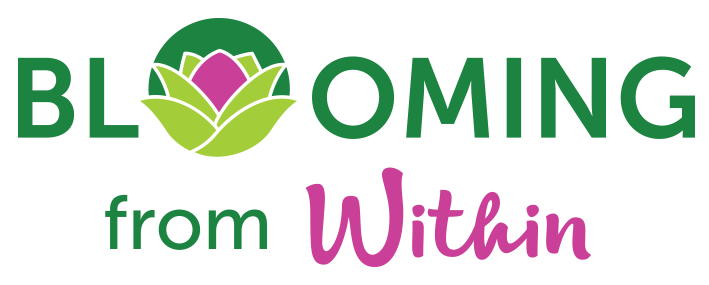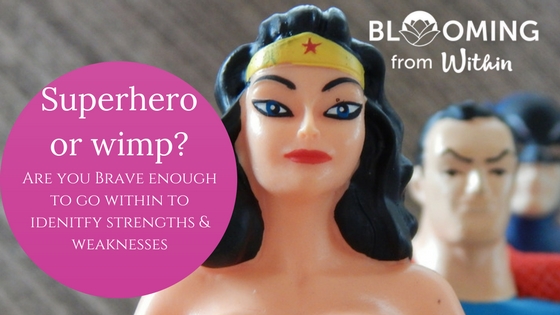As we migrate on our journey path, to live the life we want, we need to IDENTIFY aspects which support us in achieving that NYE intention we set. It’s important to know and understand what our core STRENGTHs are so that we can focus on boundaries of success.
Often we jump quickly into goal setting without pausing and reverse engineering the processes of the steps involved to achieve success. You don’t need superpowers to go within and have a good look at where you’re at in life. You just need courage, a journal and a deep breath!
One of the best first steps of assessing whether a goal is achievable. It involves taking a few moments to acknowledge what you’re good at. When you have faith in yourself of the things you can do, you can then focus on building resources to improve your weaknesses.

Strength is something which all people have like talents, positive attitude, patience and confidence. Looking at strength is about opening up new opportunities and focusing on the possibilities rather than the problems. It’s useful to understand your strengths on a conscious level, so that when a challenge or obstacle arises, you instinctively know you can reach into YOUR toolbox and work through to a solution.
Additionally, recognising and understanding strengths provides you more available energy and motivation to jump onto opportunities as they arise! When we understand our strengths, we are generally able to clearly FOCUS on working through the challenge. Our motivation often remains very high because of our belief that we can climb the mountain, overcome the obstacle – because we’ve got evidence in our life that we’ve done it before.
A skill on the other hand, is something that you can do, like riding a bike, reading and writing, holding conversations. The reason strengths and skills are looked at during one of my clinical or coaching sessions, is to demonstrate you have evidence from your past that YOU can improve your quality of life, sense of competency and life satisfaction.
Your weaknesses are the things that appear difficult to learn and/or difficult to do. We all have them! Sicinski states “Your weaknesses are simply areas of your life where you have had very limited experience, given very little attention to, or been misguided in some way. They may include underdeveloped characteristics and skills, poor learned behaviours, limiting beliefs, and inadequate knowledge. Above all others, your limited beliefs are probably the biggest culprits.”
I like to think of a weakness as merely untapped opportunity for change!
There are three main reasons why you have weaknesses:
- You have limited experience;
- You have been misguided in some way;
- You have a set of limiting beliefs which lead to less than optimal habits of thinking.
You have limited experience in certain areas of your life due to one of two things – you have probably shown little interest in these areas, or are too young to have had the experience. When we have interest in a thing, this heightens our receptivity and natural curiosity to be willing to learn new ideas quickly. We are naturally more open to new perspectives and ways of looking at things. The direct result we increase focus and mental resources on the topic of interest more and more.
Weaknesses also manifest from the fact that you were misguided or have misperception in some way. You might, for instance, have certain traits, characteristics, behaviours and limiting habits that you learned and picked up from observing other people. Often this occurs in childhood and what we are exposed to in terms of belief systems and values of adults around us. I see this most frequently manifested in my clinical practice as ‘unconscious fear’.
These patterns of behaviour we observe as a child, in parents, grandparents, extended family, teachers and community leaders etc formulate our belief system – which can be positively or negatively emotionally charged. If your belief is negative based, your weaknesses can for example often stem from the fact that you think about things in less than optimal ways. This may link back to a lack of experience or to the fact that you were misguided or misperceived events in some way in the past. And as a result, you have a set of limiting beliefs in certain areas of your life that negatively influence your behaviours, decisions, thoughts, and actions.
Exploring your weaknesses isn’t a bad thing. This process allows you to gain the necessary support you need in areas where you require the most assistance, support or training. You can therefore turn these weaknesses into strengths by acquiring the necessary knowledge, people or resources you need to accomplish your goal.
When you clearly understand what your strengths and weaknesses, you are likely to receive the following benefits:
- You will easily focus on the things that have the biggest or most positive impact on your life;
- You will save time by drawing your attention and focus on things that will bring you the greatest happiness;
- You increase access to your internal and external resources and therefore make better decisions every single day;
- You can delegate tasks to people with more proficiency, OR undertake training to gain the additional skills;
- You can reduce levels of stress, anxiety, apprehension, overwhelm, or frustration because your confidence in your ability has been acknowledged OR your willingness to try increases;
- You connect positively to your values and belief system, enabling you to contribute more to others and to the world around you; and
- Your levels of self-confidence increases because all of a sudden there is more certainty and clarity in your life.
Being aware of your strengths and skills is a great way to start looking at what tools you already have which can assist in achieving goals associated with living your dream life. In her book, “Believe in Yourself & Do What You Love”, Kate James discusses that people are far more likely to be happy, content and engaged in their life, when you do something you’re naturally good at. And remember, it’s ok to not be good at everything!
So here’s a couple of tips! You may like to get your journal out for this exercise and allow the questions to percolate the answers over a couple of days. After all, you have to allow your subconscious mind to drip feed you the information sometimes!
1. Write down everything you’re good at! It’s not rocket science, but can be a little confrontational because society tells us we’re being egomaniacs when we highlight what we’re good at. Bollicks I say! Let’s focus instead on everything you love doing and why you’re good at it!
Having compiled your list of strengths, take the time now to ask yourself three additional questions (in relation to that dream of the ideal life you have):
- Which of my strengths would I like to improve upon?
- Which strengths are most important with accomplishing my goals?
- What strengths will help me to become the person I seek to be?
2. Write down areas of life you’d like to improve (notice I’m converting negative into positive!) Ask yourself these questions!:
- In what specific situations are these weaknesses unhelpful?
- In what situations are these weaknesses potentially helpful?
- What’s the value of knowing this?
3. Reflective questions are brilliant to steer us back to goal setting in terms of what needs to change in terms of living my dream life?
Ask yourself these questions. You may like to pick one that pushes your buttons or answer them all!
- How could I best overcome my personal limitations?
- Who could potentially assist me in this area of my life?
- What resources and knowledge might I need to acquire?
- What experience might I need to gain?
- How can I potentially use my strengths to overcome my weaknesses?
- What potential opportunities can be found within my weaknesses?
- How could my weaknesses become strengths in a different context?
As you work through these questions it’s important to keep in mind that even though you might have a weakness in a certain area, this doesn’t necessarily mean that it’s an actual “limitation” or that it should stop you in any way.
I’m supporting people’s change process every single day in my clinical practice, utilising Kinesiology and Wellness Coaching to defuse negative emotional charge within values and belief systems. Change is possible for anyone who chooses to be open to possibilities!
Remember that we all have weakness, some of which are an actual limitation (like my ability to sing!) so it’s important to accept this as a fact. Should I choose, I could focus on taking singing lessons and developing strengths and skills to utilise my vocal cords in a way that doesn’t sound like I’m causing a cat pain, but at the end of the day, I’d rather spend my time and energies on other aspects of life. I shall leave the singing for the shower!
4. Therefore in some scenarios you need to assess where you’re better off utilizing other people’s strengths to offset your weaknesses in order to get the outcomes you desire to have in your life. As such, it might be worthwhile asking yourself three additional questions:
- How have I managed my weaknesses in the past?
- How can I minimize my weaknesses in the present?
- How can I better manage my weaknesses in the future?
The answers to these questions should provide you with the information and ideally solutions you require to gain the most value from your choices and decisions moving forward to live your dream life.
Good luck in going within and exploring self. Remember you can choose to change and bloom from within xx
References:
James, Kate. (2015) “Believe in Yourself & Do What You Love“, Affirm Press.
Sicinski, Adam. “How to critically assess your greatest strengths and weaknesses“, IQMATRIX


I need to to thank you for this good read!!
I definitely loved every bit of it. I’ve got you bookmarked
to look at new things you post…
Thanks for visiting and reading my blog! So grateful for your time! Welcome to the Change Tribe!
Thanks for your personal marvelous posting! I definitely enjoyed reading it, you
might be a great author.I will make sure to bookmark your blog and may come back sometime soon. I want to encourage you continue
your great work, have a nice morning!
thanks for your time and energy to read my blog.
I’m truly enjoying the design and layout of your blog.
It’s a very easy on the eyes which makes it much more pleasant for me to come here and visit more
often. Did you hire out a developer to create your
theme? Outstanding work!
This is a WORDPRESS site with a dive theme and yes Natasha Berta from Berta Marketing did my web. She is awesome!
Spot on with this write-up, I really believe this amazing site needs
far more attention. I’ll probably be back again to see more, thanks
for the information!